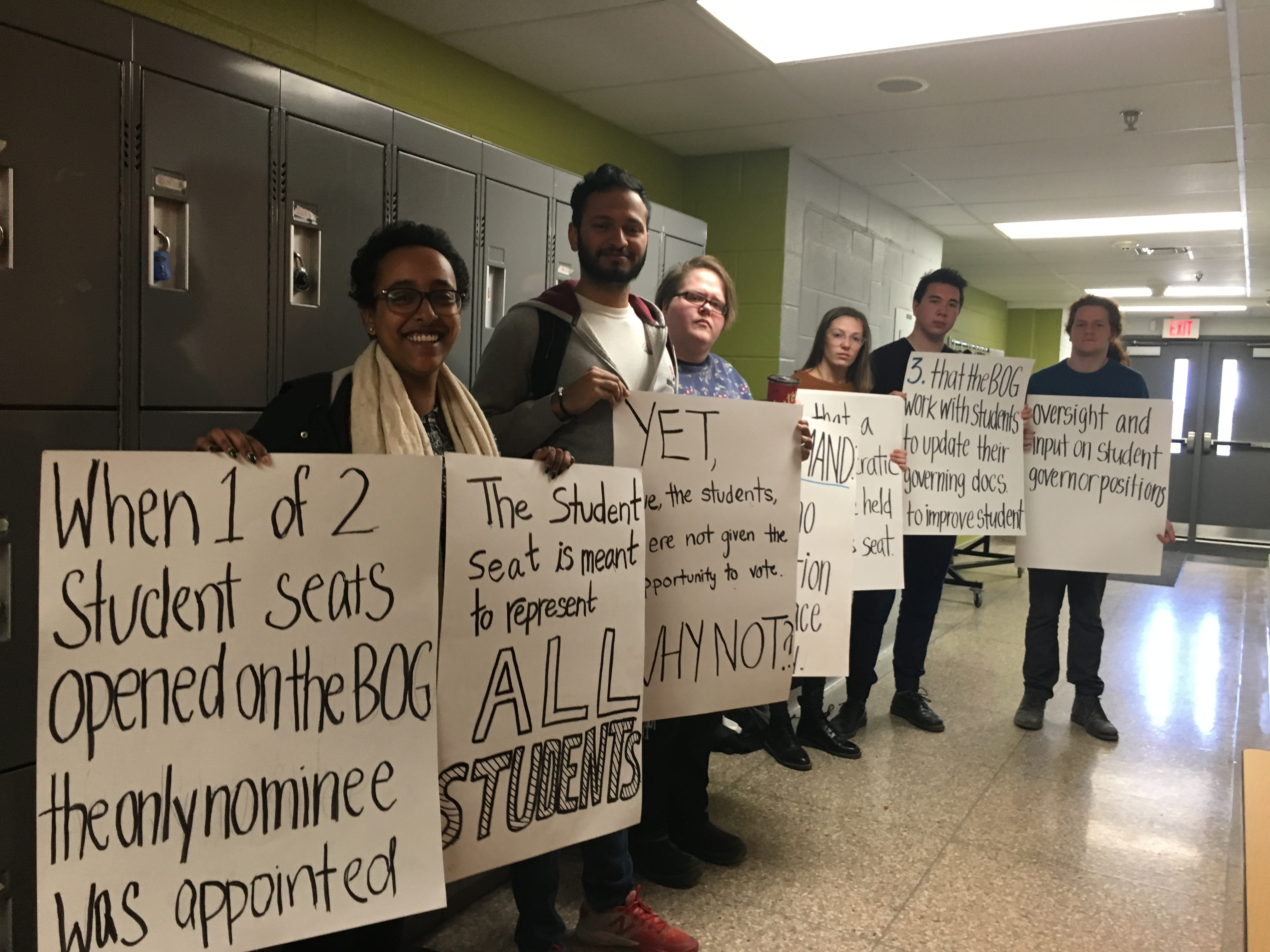
When the Trent Board of Governors announced that they had “elected” a student governor, having not actually held any election at all, students were understandably concerned.
Upon further investigation, students found out that there had only been one nominee for the positions: outgoing TCSA President Brandon Remmelgas. Considering that Remmelgas was running for the position uncontested, the Board of Governors planned for an “acclamation” of the seat.
However, those concerned with the importance of upholding democratic processes, this course of action was unsatisfactory. After all, one does not need to look further than their Trent University email inbox for examples of other electoral processes on campus, where students get the choice to abstain from voting or voting against a candidate if they run unopposed. In recent weeks, we have witnessed elections for numerous uncontested positions in the Trent University Native Association (TUNA), Trent International Students Association (TISA), and of course, the Trent Central Student Association (TCSA).
Additional concerns were voiced over how accessible information about the position and nomination process had been, as students felt as though there had not been enough information made available to them. Perhaps there had only been one person interested in the position, because not enough students had been made aware of the position.
These concerns culminated in a small number of students affiliated with various organizations including TISA, the TCSA, as well as the Peterborough Coalition Against Cuts to Education, taking a trip down to Trent’s Durham Campus, where the BoG Meeting was being held on March 29.
The students engaged in silent protest, standing outside of the room where the closed session was being held, holding signs that read: “When one of the two student seats on the BoG opened, the only nominee was appointed. The student seat is meant to represent all students. Yet, we the students, were not given the opportunity to vote. Why not? We demand: 1. That no ratification take place today. 2. That a new democratic election be held to fill the seat. 3. That the BoG work with students to update their governing documents to improve student oversight and input on Student Governor positions.”
Students and faculty at Trent’s Durham campus shared similar concerns to the protesters from Peterborough campus. Some noted that the Board does not have any seats set aside specifically for those who attend, or work at, the Trent Durham Campus. Under the current structure, it is very difficult for folks at Trent Durham to occupy the positions for faculty and students, because they are simply outnumbered by their Peterborough counterparts.
As the members of the Board of Governors filtered out of the closed session, the students were met with mixed responses. Some governors stopped to read the signs, thanking students for their time, while others kept walking.
When asked why she felt it was important to be there, outgoing TCSA VP Campaigns and Equity, Lindsay Yates said that “Being there showed that we were paying attention and wanted to be heard. A lot of the BOG members don’t know about the student governor election process or about what student concerns are, and their contact information is not available for students to reach out, so this was a good way of getting our message across to everyone on the BOG.”
And their message certainly was received. The students were invited to meet with current Student Governor Tessa Smith, President Leo Groarke, Associate VP Student Affairs Nona Robinson, Marilyn Burns Associate Vice-President Marketing & Recruitment, and Trent University Secretary Karen Spearing.
The Board members noted that in the past, uncontested nominees had always been acclaimed, while the students noted some ambiguity in the governing documents, particularly around the use of the word ‘election’.
Also discussed at great length was the role of the student governor on the Board, and whether they are meant to represent the student body, or whether they are meant to represent their own individual student perspective.
The students were invited to attend a meeting of the Board’s Nominating and Governance Committee to express their concerns, potential next steps in regards to satisfying their demands, as well as what can be done in the future to ensure that democratic processes are upheld by the Board of Governors. This meeting will take place at the end of April.
